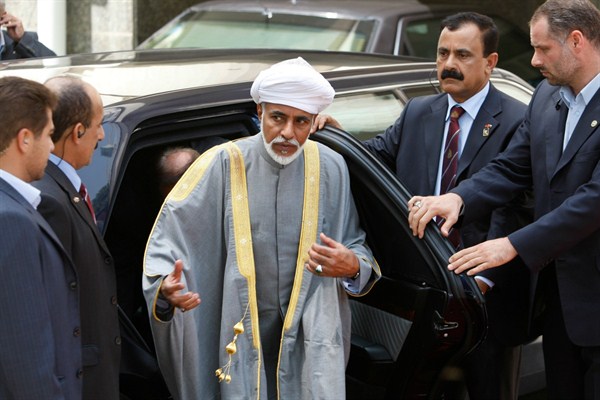Oman rarely draws international attention in a region overshadowed by the rivalry between Iran and Saudi Arabia and, since last year, the war in Yemen. But the country has emerged as an important element of U.S. policy in the Gulf and wider Middle East, serving as an interlocutor between Riyadh and Tehran. Sultan Qaboos bin Said Al Said—the Middle East’s longest-reigning monarch, having held power since 1970—has maintained Oman’s relative neutrality in regional conflicts, making the country a hub for delicate negotiations.
For many years, Oman has enjoyed the best relations with Iran of any member of the Gulf Cooperation Council (GCC) and positioned itself as a mediator. In the 1980s, it remained neutral throughout the Iran-Iraq War and secretly hosted cease-fire negotiations between the two sides. In 2011, Muscat assisted with the release of two American hikers who were detained in Iran. The country was central in bringing Tehran to the negotiating table with the U.S. in 2012, hosting back-channel talks between U.S. and Iranian officials in Muscat that paved the way for the Iran nuclear deal. In May 2015, Oman hosted talks between senior State Department officials and Yemen’s Houthi rebels, two months after the Saudi-led intervention to oust the Houthis and restore Yemen’s president to power began.
Oman’s ability to lend a helping hand to U.S. interests in the region has bolstered ties. “The bilateral relationship has arguably never been stronger,” says Sigurd Neubauer, a nonresident fellow at The Arab Gulf States Institute in Washington, in an email interview.

